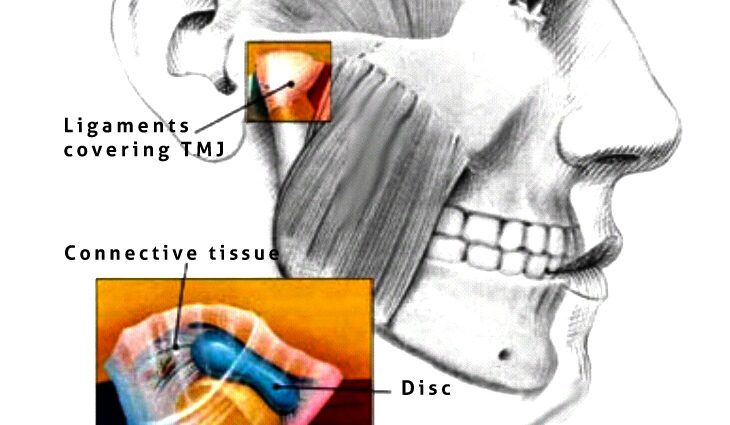Contents
Trismus: definition, cause and treatment
Trismus refers to a difficulty in opening the mouth, or even an inability to do so.
What is trismus?
Due to an involuntary and permanent contracture of the masticatory muscles, a physical obstacle or poor tissue healing after trauma, the mouth is only able to partially open. This constriction is often painful and can affect facial expression. Above all, the limited opening of the mouth is disabling: it prevents speaking, eating, swallowing and brushing teeth. It therefore has a significant impact on health. If the problem persists, those affected may eventually suffer from undernutrition, dehydration or oral pathologies. Their social life can also suffer.
What are the causes of trismus?
There are many causes of trismus. It could be :
- tetanus : this serious acute infection only affects a few isolated cases in France. But it still occurs in people who have not been vaccinated or who have not received their vaccination reminders. When after a wound, the bacteria Clostridium tetani enters their body, it releases a neurotoxin which causes contractions and involuntary spasms in the muscles of the upper body within a few days. Trismus is the first sign to appear in tetanus, before the onset of respiratory problems associated with paralysis of the larynx and pharynx. It should therefore be taken seriously in those who are not up to date with their vaccines. If it is tetanus, emergency hospitalization is required;
- trauma : a dislocation or a fracture of the jaw, for example, can induce a blockage of the jaw, especially if it is not properly reduced;
- a postoperative complication : During the extraction of a wisdom tooth in particular, the muscles and ligaments may have been stretched. In reaction, they can remain contracted. A hematoma can also form, causing swelling of the gums and painful blockage of the jaw. Another possible complication: dental alveolitis, which can manifest itself a few days or weeks after the operation by a trismus associated with fever, asymmetry of the face and sometimes the presence of pus. These different situations can evolve spontaneously: the patients manage to open their mouth again after a few days. Sometimes treatment is necessary;
- physical blockage of the jaws, linked for example to a wisdom tooth that does not grow in the right direction, to temporomaxillary arthritis, a dental abscess or the presence of a tumor. A strong local inflammation can also be involved, such as tonsillar phlegmon, which is a possible complication of poorly treated bacterial angina;
- radiation therapy to the head and neck : Even if delivered in the most targeted way possible, the radiation burns the tissue around the treated tumor, which can cause a healing problem called fibrosis. In the case of radiotherapy to the head and / or neck, the masticatory muscles may suffer from this fibrosis and gradually stiffen, until they block the opening of the mouth. Trismus develops slowly after the end of treatment and gets worse over time;
- side effects of a drug : neuroleptic treatments in particular, by blocking certain nerve receptors, can cause abnormal and involuntary muscle movements. Their effects end when treatment is stopped.
Because stress affects muscle contractions, it can make it worse.
What are the symptoms of trismus?
We speak of trismus when the mouth opening is limited. This can be more or less important, therefore more or less disabling. Pain is usually associated with it, especially with muscle contracture.
Trismus can be temporary, after a tooth extraction operation for example, or permanent. In the latter case, it poses a problem for speaking, chewing, swallowing, taking care of his teeth. As a result, patients no longer eat properly and lose weight, are more prone to oral problems and become socially isolated. The pain also prevents them from sleeping.
How to treat a trismus?
It depends on the cause. If an infection, fracture, tumor or inflammation is responsible for trismus, it should be treated as a priority. If it is the result of intolerance to a drug, the doctor who prescribed it may change it.
If the trismus persists, heat therapy (with a heating mask), massages, relaxation techniques or rehabilitation sessions may be necessary to relax the muscles and regain a good range of mouth opening. For the most refractory cases, a medication can also be offered as a supplement: it does not improve the mobility of the jaws but acts on spasms and pain.
On the other hand, in the event of post-radiotherapy fibrosis, it is necessary to act as soon as the stiffness begins. The sooner we act, the better we can prevent it from developing and taking hold. Do not hesitate to talk about it with the care team. This can offer adequate rehabilitation exercises, prescribe treatments, or even refer to a physiotherapist, speech therapist or dentist.
When the trismus is severe and permanent, and does not subside with rehabilitation, surgery is offered as a last resort, to improve the situation: muscle disinsertion in the event of fibrosis, coronoidectomy in the event of bone blockage, joint prosthesis, etc.










